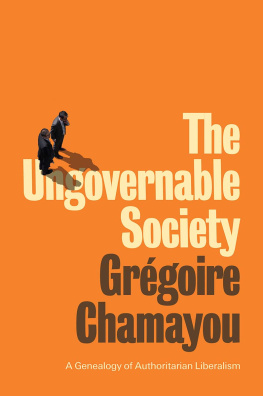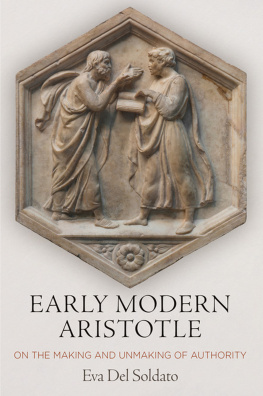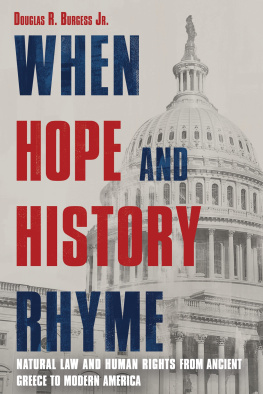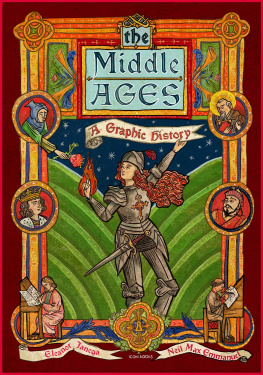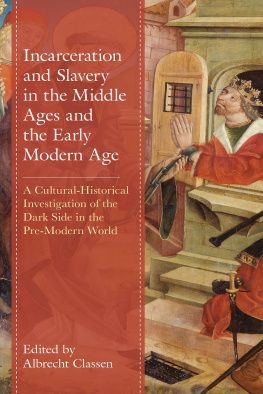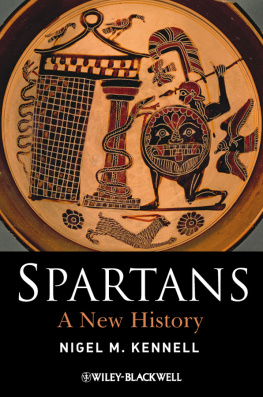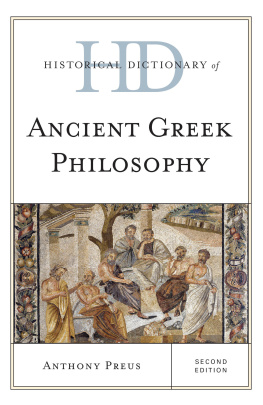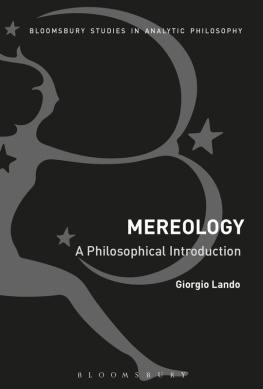MANHUNTS
MANHUNTS
A Philosophical History
Grgoire Chamayou
Translated by Steven Rendall

Originally published in France as Les chasses lhomme: Histoire et philosophie du pouvoir cyngtique La Fabrique-ditions, Paris, 2010
Copyright 2012 by Princeton University Press
Requests for permission to reproduce material from this work should be sent to Permissions, Princeton University Press
Published by Princeton University Press, 41 William Street,
Princeton, New Jersey 08540
In the United Kingdom: Princeton University Press, 6 Oxford Street,
Woodstock, Oxfordshire OX20 1TW
press.princeton.edu
All Rights Reserved
Library of Congress Cataloging-in-Publication Data
Chamayou, Grgoire.
[Chasses lhomme. English]
Manhunts : a philosophical history / Grgoire Chamayou;
translated by Steven Rendall.
p. cm.
Includes bibliographical references (p.) and index.
ISBN 978-0-691-15165-6 (alk. paper)
1. Violence-Philosophy. 2. Hunting-Philosophy. 3. Minorities-Crimes against. 4. Lynching. I. Title.
HM886.C4314 2012 303.6-dc232011034778
British Library Cataloging-in-Publication Data is available
Publication of this book has been aided by CNL (Centre national du livre)
This book has been composed in Minion Pro
Printed on acid-free paper.
Printed in the United States of America
1 3 5 7 9 10 8 6 4 2
CONTENTS
MANHUNTS
INTRODUCTION
IN THE FIFTEENTH CENTURY, a very special kind of hunt is said to have taken place in France on the grounds of the royal chateau of Amboise. King Louis XI, who had been offered the dreadful pleasure of a manhunt, set out in pursuit of a convict wearing the hide of a freshly killed stag. Released on the grounds and quickly caught by the royal pack of hounds, the man was torn to pieces by the dogs.
To write a history of manhunts is to write one fragment of a long history of violence on the part of the dominant. It is also to write the history of the technologies of predation indispensable for the establishment and reproduction of relationships of domination.
The manhunt must not be understood here as a metaphor. It refers to concrete historical phenomena in which human beings were tracked down, captured, or killed in accord with the forms of the hunt; these were regular and sometimes large-scale practices whose forms were first theorized in ancient Greece, long before their enormous expansion in the modern period in conjunction with the development of transatlantic capitalism.
The French noun la chasse is defined here as the action of hunting, pursuing, particularly with regard to animals,and hunting that excludes. These two operations are distinct but may enter into a relationship of complementarity: hunting human beings, tracking them down, often presupposes that they have been previously chased out, expelled, or excluded from a common order. Every hunt is accompanied by a theory of its prey that explains why, by virtue of what difference, of what distinction, some men can be hunted and others not. The history of man-hunting is thus a history not only of the techniques of tracking and capture but also of procedures of exclusion, of lines of demarcation drawn within the human community in order to define the humans who can be hunted.
However, the hunters triumphand his pleasurewould be less intense if the human hunted were not nonetheless a human. The supreme excitement and at the same time the absolute demonstration of social superiority is, in fact, to hunt beings whom one knows to be men and not animals. That is because, as Balzac put it in a formula that can serve here as an axiom, So the hunt for men is superior to the other class of hunting by all the distance that there is between animals and human beings. Thus, this distance has to be recognized at the same time that it is denied. And therein lies its peculiar challenge: to succeed in erasing the distance between the human hunted and the animal prey, not theoretically but practically, in the act of capture or putting to death. Recognizing the humanity of the prey and at the same time challenging it in practice are thus the two contradictory attitudes constitutive of the manhunt.
If there is an animalization here, it is perhaps in the sense in which Hannah Arendt writes that man can be fully dominated only when he becomes a specimen of the animal-species man:in which they would cease to be humans, but rather the reduction of their humanity to human animalityan animality that always remains full of its own redoubtable resources.
The main problem has to do with the fact that the hunter and the hunted do not belong to different species. Since the distinction between the predator and his prey is not inscribed in nature, the hunting relationship is always susceptible to a reversal of positions. Prey sometimes band together to become hunters in their turn. The history of a power is also the history of the struggles to overthrow it.
CHAPTER 1
The Hunt for Bipedal Cattle
Man is a tame animal, and I admit that he is hunted.
PLATO, SOPHIST 222C
The art of acquiring slaves, I mean of justly acquiring them,... [is] a species of hunting or war.
ARISTOTLE, POLITICS
A slave... has escaped in Alexandria, by name Hermon also called Neilos, by birth a Syrian... about 18 years old, of medium stature, beardless, with good legs, a dimple on the chin, a mole by the left side of the nose a scar above the left corner of the mouth, tattooed on the right wrist with two barbaric letters....
Whoever brings back this slave shall receive 3 talents of copper.
ANONYMOUS PAPYRUS FROM ALEXANDRIA
GREEK PHILOSOPHY contains a warning that political thought has not taken seriously enough, despite the ancients insistence on it: the masters power is based on the violent act of capturing their subjects. Domination presupposes a kind of manhunt. This book takes this fundamental thesis as its starting point and examines its implications from the point of view of the dominated, the prey. The goal is to write a history and a philosophy of hunting powers and their technologies of capture.
For the Greeks, the manhunt is not only a metaphor of the play of seduction, hunting for lovers, or sophistical traps. It is Battles and military raids were among the main sources of supply for slave labor.
In the Sophist, Plato emphasizes the fact that hunting cannot be reduced to tracking wild animals. Among the different branches of the cynegetic art there is also an art of manhunting, which is in turn subdivided into several categories: Let us define piracy, manstealing, tyranny, the whole military art, by one name, as hunting with violence.
Greek philosophers conceive manhunting as an art or technology of power. There is an art of acquiring slaves. From the outset, domination is examined in a technological perspective: what must masters do to be masters? On what procedures does their power depend?
The main characteristic of the manhunt as a technology of power is its nonproductivity: it does not make its object but obtains it by taking it from some external source. According to the classical dichotomy, it is a technology not of production but of acquisition.hunt or fruits in a harvestthat is, without having had to organize the production. It is in this sense that Aristotle can describe hunting for slaves as a natural art of acquisition.
But although the manhunt appears to be a technology of power, it does not figure among the political arts in the full sense of the term. The cynegetic modality of power is exercised only as the condition for the masters economic domination. As such it is not an art of the polis.
Next page

